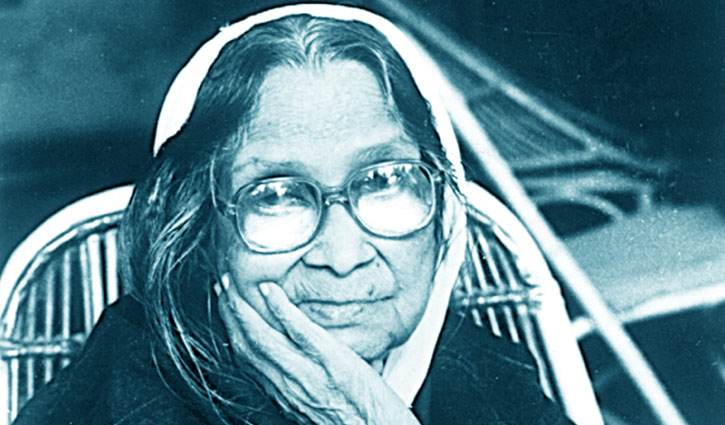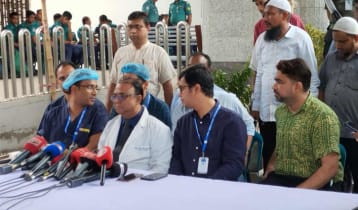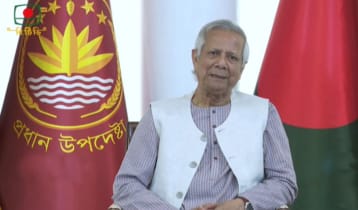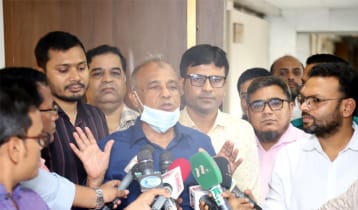Sufia Kamal’s death anniversary today
4 || risingbd.com

Risingbd Desk: The 19th death anniversary of poet Begum Sufia Kamal, founding president of Bangladesh Mohila Parishad and a pioneer of Bengali women’s emancipation, is being observed across the country today (Tuesday) in a befitting manner.
Different socio-cultural organisations are observing the day through various programmes.
On the occasion, President Abdul Hamid and Prime Minister Sheikh Hasina have issued separate messages to pay tributes to the memory of poet Sufia Kamal.
They prayed for eternal peace of the departed soul of Sufia Kamal.
Sufia Kamal was born on June 20 in 1911 at her maternal uncle’s home at Shayestabad in Barisal.
Her father’s name was Abdul Bari and mother was Syeda Sabera Khatun.
Despite being born to a conservative Muslim family, she was taught Bengali by her mother Sabera Begum.
Apart from her literary pursuits, Sufia Kamal fought for women’s and humanity’s emancipation and restoration of democracy. She was also active in the 1952 Language Movement.
She was also involved in the movement to protest the embargo on Tagore songs imposed by then government in the late 60s. She got also involved in the mass-upsurge of 1969 and the non-cooperation movement of March 1971.
Sufia Kamal also renounced the “Tamgha-I-Imtiaz” award given to her by the then Pakistan government.
She was an excellent organiser. In the politically charged atmosphere of 1970, she organised the Bangladesh Mohila Parishad.
Earlier, in 1956, she organised the children’s organisation “Kochi-Kachar Mela”.
Sufia Kamal edited the women’s magazine “Begum” before partition of the subcontinent in 1947. Her first poem “Bashanti” was printed in the “Saogat” in 1926. Since then, she had written prolifically: poems, short stories and travelogues. Her “Ekatturer Diary” tells the untold stories of the Bengalis in 1971.
Her struggle for a disparity-free society and her politics earned her over 50 awards, including the “Ekushey Padak”, “Swadhinata Dibash Padak” and “Bangla Academy Padak”.
She played a crucial role in the emancipation of women in post-liberation Bangladesh. She was uncompromising about communalism and fundamentalism.
The poet died on November 20 in 1999. She was the first Bengali woman to be buried with state honours.
risingbd/Nov 20, 2018/Mukul
risingbd.com


















